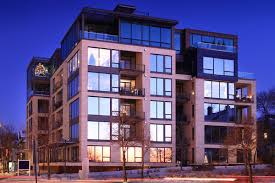Diamond Home Inspections | Home Inspection 612-223-5387

When a condo is bought and sold a condo inspection is highly recommended to alert both buyers and sellers to the condition of the property in question. The condo inspector’s role is to enter the condo and analyze all of the major operational and structural elements of the property which usually spans three hours for detached single homes, and two hours for condominiums, but can depend on the size, age, and complexity of the property. I always encourage clients to attend the inspection as an opportunity to hear verbal feedback from the inspection, as well as a last opportunity to be within the condo before waiving conditions for a more prolonged duration than the viewing. The inspector will give a detailed report of the findings within 24 hours or less.
The inspector will thoroughly walk through the property and inspect the following areas:
- Windows, Walls and Ceilings- The walls, windows, and ceiling of a unit can tell you a lot about its general condition. Mold is one of the biggest things to the inspector will look out for. They will look for spotting on the windows or walls, and water damage on the ceiling. the inspector will also look for cracks in the walls or ceiling, which can point to a problem with the building’s foundation. This may or may not affect you in the future, but it’s always better to know about problems that could arise (and any financial impact they may have on unit owners) before making a purchase.
- HVAC and Electrical System- Each condo has their own HVAC and electrical system, because of this, maintenance and repairs are not covered by the condos association fee. Since your are liable for these cost, getting a inspection can save you thousands of dollars in costly repairs. When it comes to the electrical system, an inspector can tell you whether it’s working properly—and double check that the wiring doesn’t pose a fire hazard.
- Major Appliances- Malfunctioning or broken appliances can create major headaches. Imagine moving into a condo only to discover that the dryer periodically stops working. And how would you feel if, after using your gas stove for the very first time, you suspected it was a hazard? It happens. The inspector will look to ensure that they’re both fully functional and safely connected.
- Cabinets and Drawers- The inspector will look at all the cabinetry and that the doors are level, like a cabinet door that’s crooked due to a broken hinge or a drawer that sticks every time you try to open it. Sometimes, these little daily annoyances can get to you. While homeowners often put off fixing them when they’ve lived in a home for years, you certainly shouldn’t have to deal with them in a condo you’ve just moved into.
- Small ( but important) things- Even if other people have lived in the condo you’re purchasing, it’s new to you. Unfortunately, wear and tear—and things that malfunction or just feel out of place—can negatively impact how you feel about your new digs. When the inspector is looking at a unit, they will keep an eye out for anything that might create hassles for you down the road. Gaps in your bathroom caulking, a broken smoke detector and light fixtures are just some of the things they will be looking for.
Your home inspector will also offer ancillary services to our customers while they are there including, FLIR Thermal imaging, Home Energy Audit, Mold Inspection, Pool and Spa Inspection and Termite Inspection.
When purchasing your new condo you don’t want to be blind sided by any additional cost you were not factoring in. Call us today to book your condo inspection and let us give you the peace of mind!
Diamond Home Inspections | Home Inspection 612-223-5387